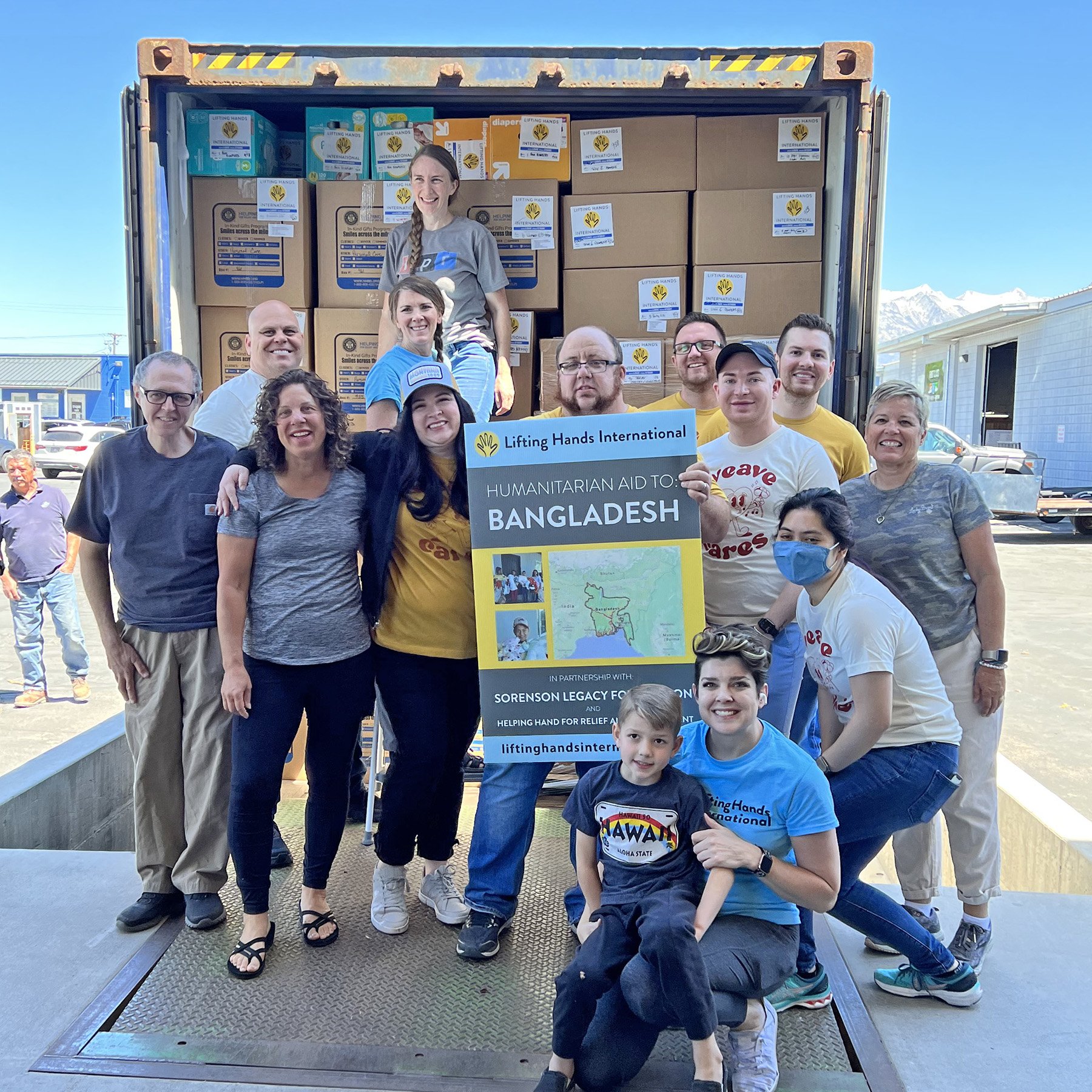by Brigid Rowlings, LHI Communications Director
Ambulance drivers in Gaza learn soft-belly meditation techniques to help mitigate the effects of post-traumatic stress disorder.
Fred Rogers, best known for his television show Mr. Rogers Neighborhood, once told his young audience: “When I was a boy and I would see scary things in the news my mother would say to me, ‘Look for the helpers. You will always find people who are helping.’” These words of wisdom are comforting to the young and old alike—when bad things happen, it is reassuring to remember that there are good and kind people in the world. Since the start of the conflict in Gaza, LHI has learned there is another reason to look for the helpers: those who respond in times of crisis are likely to need help themselves.
Doctors, nurses, first responders, and other aid workers in Gaza are not only responding to situations that are dangerous, stressful, and frightening, but they and their families are also living in those same situations. These helpers in Gaza are at an increased risk for developing post-traumatic stress disorder (PTSD). The symptoms of PTSD, which include chronic pain, dizziness, headaches, irritability, sleep problems, and difficulty concentrating, can get in the way of these helpers doing their jobs. And, unfortunately, in Gaza where borders and movement in and out are tightly controlled, Gazan first responders are the most consistent deliverers of aid and services in the region.
First responders attend a Mind-Body workshop.
Lifting Hands International has partnered with the Center For Mind-Body Medicine to provide psychological first aid for first responders in Gaza. Beneficiaries participate in Emergency Mind-Body Self-Care Workshops or Mind-Body Skills groups where they learn techniques for mitigating the effects of PTSD.
We’ve heard from some of the aid workers in Gaza who have completed these trainings.
Salah, a 36-year-old resident of the northern Gaza Strip, in Jabalia Camp, works for the Red Crescent Society as a first responder.
“Before attending the Mind-Body Workshop, I used to go out to treat the injured in a reckless manner without taking care of myself. It’s a miracle I survived. After learning and practicing the skills of the Mind-body, especially self-care, breathing and relaxation exercises, I began to take more care of myself, and come to myself, before going out to treat the injured. This has allowed me to better protect myself, staying as safe as others, and continue to be able to provide services to others.
Niveen, 38 years old, an administrative professional at a United Nations Relief and Works Agency for Palestinian Refugees (UNRWA) shelter, said:
“I am a resident of Khan Yunis, and when the ground invasion and violent bombing began there, and my house was subjected to artillery shelling, I, my husband, and my children fled to Rafah. I have had so much stress, especially given our difficult living conditions ever since. I became more nervous, feeling terrified around the clock. I felt alienated from myself, my children, and my family, and I lost interest in myself and passion for life.
After joining the Mind-Body Group, I began to feel more self-assurance, and inner peace. I became more interested in myself and my family again. I practiced the self-care exercises I learned, and I started giving time to my hobbies. Now I am able to spread hope and optimism to my family, friends, and coworkers.”
Najat, 50 years old, a social worker at UNRWA shelter, said:
“I fled my home in Khan Yunis Governorate after my home was bombed with missiles, bombs, and flash bombs. I fled and left my home, my belongings, and my memories. I fled with my family to escape death. I moved to our relatives’ house, thinking that their house would be safer, but we were followed by bombing and explosions, as a house right next to us was bombed. I felt so unsafe, fearful, and I suffered from lack of sleep, anxiety, stress, fear, and increased nervousness with my children and husband.
After my family and I went to stay in the shelter center and I began working in there as a social worker, I joined Mind-Body Group. After practicing the skills they taught, I began to feel better in dealing with life and work stressors. I began to feel that there was hope in life, and that I will someday return to my home and restore it.”
LHI is committed to helping the helpers in Gaza, but we need your help to continue providing Center for Mind-Body workshops to aid workers and first responders. You can help by donating to our Gaza Emergency Response campaign. Any amount helps us keep this important work going.








